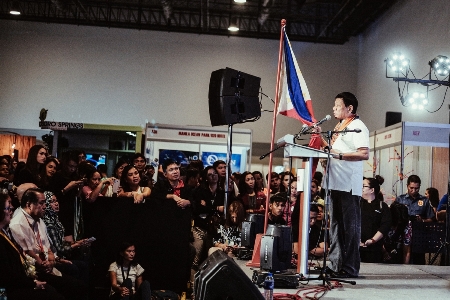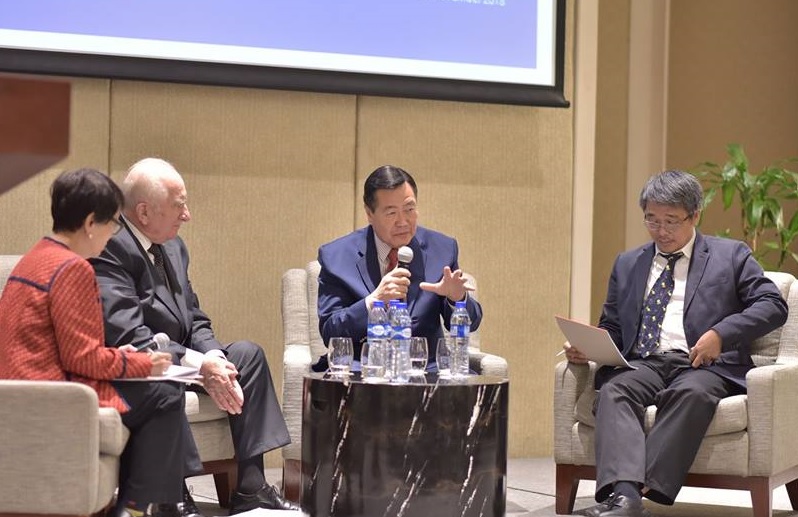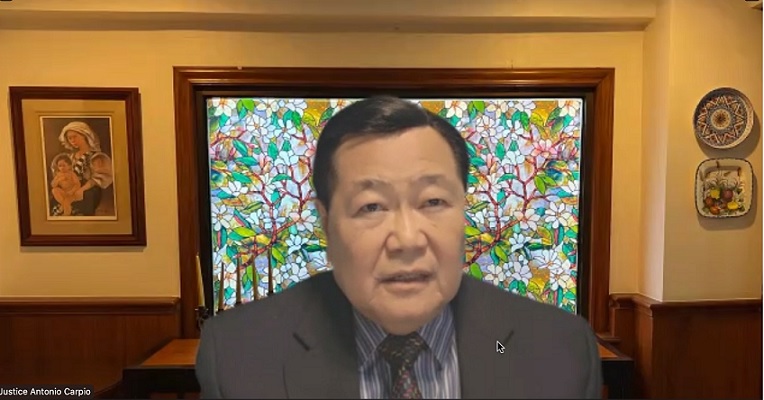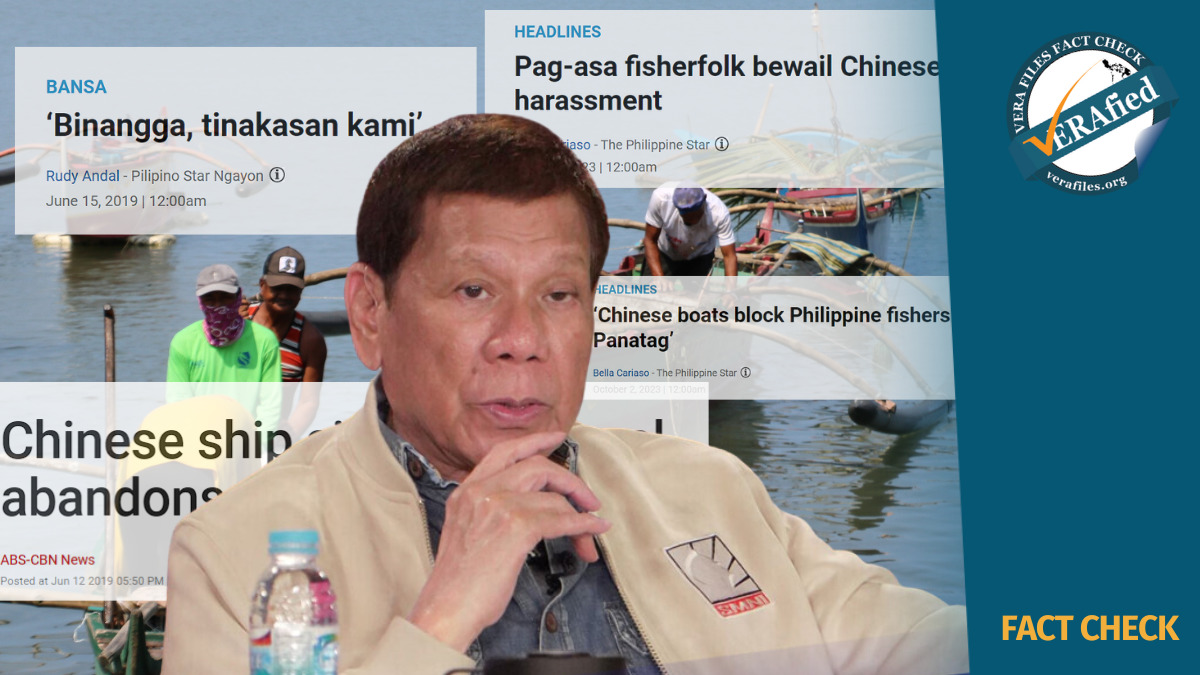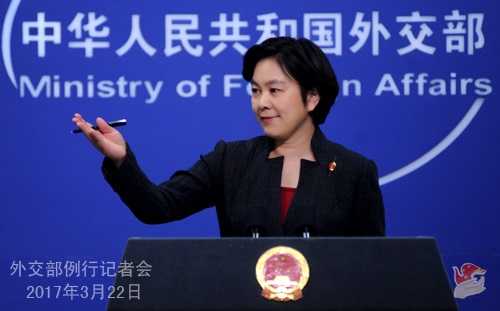
China’s Foreign Ministry Spokesperson Hua Chunying in her March 22 presscon.
China has denied that they are building an environmental monitoring station in Scarborough Shoal which they call “Huangyan Dao” as reported by Reuters last week based on a news report in the Chinese language newspaper Hainan Daily.
The reply of China’s Foreign Ministry Spokesperson Hua Chunying to the question about the Department of Foreign Affairs’ inquiry on the reported monitoring station in Scarborough Shoal , also known as Panatag Shoal and Bajo de Masinloc, was categorical: “There is no such a thing.”
She said, “We have checked with relevant authorities that the recent reports about building an environmental monitoring station on Huangyan Dao are false.”
Hua further said: Regarding Huangyan Dao, China’s position is consistent and clear. Meanwhile, China places great importance on its relationship with the Philippines and cherishes the sound momentum China-Philippines relations are enjoying now. We will remain committed to pursuing sound, steady and rapid development of China-Philippines relations.”
There’s no assurance from her statement that they will not do it in the future. In fact, she reiterated China’s claim over the rock off Zambales, vital to the claim of China to almost whole of the South China sea.
DFA’s note verbale to China asking for clarification was a much better move than the statement of President Duterte last week there’s nothing that the government can do because in case of a war, we would be roundly defeated.
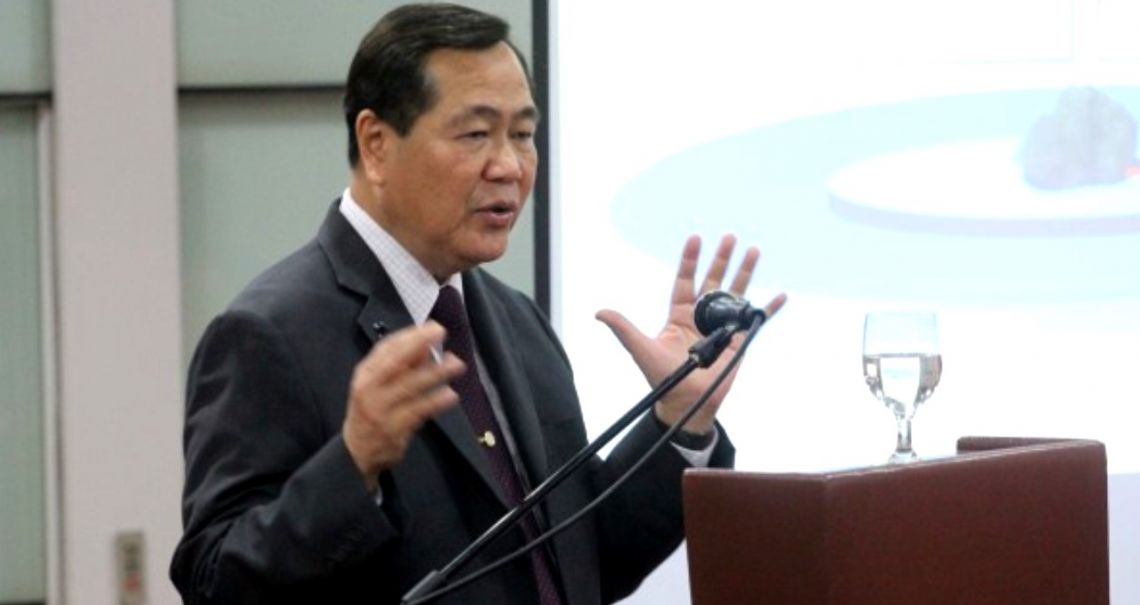
Senior Associate Justice Antonio T. Carpio cautions the President against making unilateral declarations about disputed areas.
Senior Associate Justice Antonio T. Carpio cautioned against such defeatist attitude because “There is a well recognized rule of international law that, Declarations publicly made and manifesting the will to be bound may have the effect of creating legal obligations. When the conditions for this are met, the binding character of such declarations is based on good faith; States concerned may then take them into consideration and rely on them; such States are entitled to require that such obligations be respected.”
Such unilateral declarations may be made by the head of state or government or by the minister of foreign affairs.
Carpio discussed this in his book “The South China Sea Dispute: Philippine Sovereign Rights and Jurisdiction in the West Philippine Sea” under “A caveat on Unilateral Declaration and Acquiescence.”
In the book, Carpio said:
“The leaders of the nation must exercise utmost deliberation, consistency and perseverance in seeking ways to enforce what the Arbitral Tribunal has finally awarded to the Philippines as its own EEZ in the West Philippine Sea. This is in compliance with the mandate of the Constitution that the “State shall protect the nation’s maritime wealth in its economic exclusive zone.”
“There is no room for error- for allowing any waiver, express or implied of the sovereign rights and jurisdiction of the Philippines over its vast EEZ in the West Philippine Sea, an area larger than the total area of the Philippines.”
“Every act, declaration and statement of the leaders of the nation on the enforcement of the Award of the Arbitral Tribunal must be carefully studied and weighed to prevent any opposing state from claiming that the Philippines has abandoned, expressly or implied, what it has won in the arbitration case.”
“Likewise, the International Court of Justice has stated that “silence may also speak if the conduct of the other state calls for a response.”
“Acquiescence ‘is equivalent to tacit recognition manifested by unilateral conduct which the other party may interpret as consent.”
In international law, the oft-quoted definition of acquiescence is:
“The inaction of a State which is faced with a situation constituting threat or infringement of its right. Acquiescence thus takes the form of silence or absence of protest in circumstances which generally call for a particular reaction signifying an objection.”
“Silence or inaction can be interpreted as a State’s acceptance of a factual or legal situation.
“Thus any violation or infringement of the Award by other States such as exploration by other States within the Philippine EEZ or installation of facilities in LTEs (Low Tide Elevation) within the Philippine EEZ must be protested formally to prevent any opposing state from claiming acquiescence by the Philippines.”
“Failure to heed this caveat, for any reason, is unforgivable.”

The 1734 Philippine map by Fr. Pedro Murillo Velarde which shows Panatag or Scarborough Shoal as part of Philippine territory. Photo from Mel Velarde.
